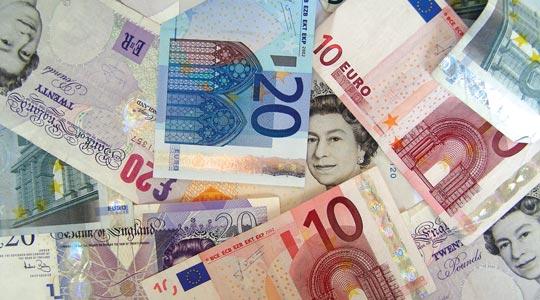Transferring money abroad is surrounded by mystery by those faced with currency transfers. How does it work? how much does it cost? How long does it take? what is the best currency exchange rate? Life gets even more complicated with regular payments abroad. No wonder most of us head for the safety of our banks to underatake money transfers for us. Many overseas property buyers and those making large transfers abroad leave their currency transfer arrangements to the last minute. This lack of knowledge or perceived choice is costing those transferring money abroad a great deal of money.
The Sunday Times report
The popular National UK newspaper The Sunday Times reports of a consumer revolt against onerous bank charges which is spreading to ‘rip-off fees’ on large foreign-exchange transactions. UK High street banks levy hefty fees on such foreign-exchange transactions, costing consumers an estimated £1 billion a year.
One Sunday Times reader threatened to take Nat West to the small-claims court when he believed he had been stung. He said the bank promptly repaid him £1,250, suggesting it knew that it could not justify the charges.
The Nat west customer sold an apartment in Portugal for a profit of €280,000 (£190,000) at the end of last year. When the proceeds landed in his Nat West account, the bank contacted him to ask if he would like to transfer the money back to sterling and offered an exchange rate of €1.46 to the pound. When the details of the transaction came through, however, they showed that it was at an exchange rate of €1.47, which cost him about £1,500.
The customer stated “I looked back at the records and found that sterling hadn’t traded at that level at all during that day. I wrote to the chief executive, who said the rate I got was correct for that size of transaction. I was not satisfied and took the complaint to the small-claims court. Nat West settled before it got to court.
“I have a strong feeling that customers are being fleeced by foreign-exchange rates and that it is a big earner for banks. If I was doing it again I would definitely research things more fully and use a specialist broker.”
Mystery Shopper reveals High Street bank charges
A mystery-shopping exercise carried out by Savills Private Finance, a mortgage broker, last Thursday found that somebody wanting to transfer the equivalent of €100,000 through Nat West, at a rate of €1.4120, would need £70,822. If they had gone to Moneycorp or Currencies Direct, both foreign-exchange brokers, they would have got a rate of €1.4753, costing them £67,783 — £3,039 cheaper.
In addition to the British bank’s charges, you may face further fees from the recipient bank. Forex specialists tend to absorb these costs. Moneycorp charges £15 on transfers but it covers any charges levied by the recipient bank and the fee is negotiable on large amounts.
Overseas property website
Nicholas Marr CEO of the overseas property website HomesGoFast.Com “Foreign currency brokers can help you get the most from foreign exchange rates when buying overseas property or transferring money abroad. Many people do not realises that exchange rates can be booked up to two years in advance and fees tend to be lower than your high street bank ‘
Buying property in France a case study
BRENDA DURKAN, 46, and her husband, Tony, recently bought a farmhouse near Limoges in France.
The couple, who run an ironmonger’s shop in Hertford, are employing a French builder to do renovation work, so they are paying him in euros, and they had to transfer money over for the purchase.
They chose to use Moneycorp because the rates they get are better than those from their bank. They have budgeted €100,000 — about £68,000 — for the renovation work, and should save about £4,000 by using Moneycorp rather than their bank.
Brenda said: “Not only are Moneycorp’s rates higher, but we also know what the rate is before we move the money.”
To find the top FX Companies see our leaderboard homesgofast.com/top-foreign-currency-companies
Lean more about using a currency broker
Useful Currency transfer blogs


